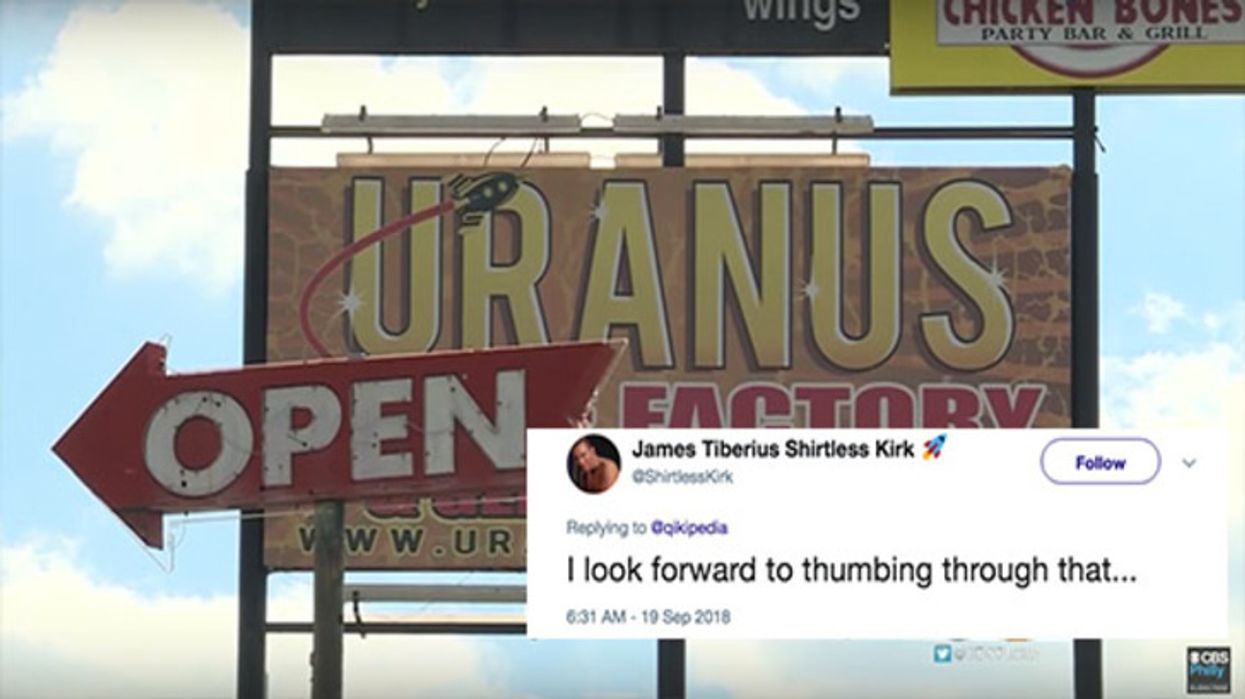March, 2005, LOS ANGELES - For the last nine months, I have been engaged in a challenging, and, to my surprise, immensely informative charge. Last summer, I was asked to serve on a task force suggested by New York Congressman Charles Rangel and chaired by former Illinois Representative, Cardis Collins, to evaluate a new technology for measuring television viewing - a system called the Local People Meter.
Like all of you, I had known of the Nielsen ratings. For people working in television, the ratings mean life or death. If your rating is good, your show is renewed and you survive for another season. If it's low, your show is cancelled and you find yourself among the unemployed. This recently happened to the latest Star Trek spin-off, "Enterprise." Its low rating killed it.
Yet, I knew very little about how the ratings were arrived at. It was a mystery to me. The Nielsen rating was life or death to us and I didn't know how this murderous and, at other times, life sustaining system worked.
I'd never met anyone in the Nielsen rating pool. So serving on the Independent Task Force on Television Measurement was an eye-opening education. Beyond learning about the Nielsen rating process as it had been practiced, I learned about the new technology being introduced as well as something about technologies yet to come. I learned of the scores of interests, other than those of us involved in television production, that are vitally concerned with the Nielsen rating - advertisers, ad agencies, broadcasters, language groups, statisticians, demographers, researchers, and many other sectors. I was staggered by the huge advertising dollars, in the tens of billions that are determined by the ratings numbers. I learned a lot.
I vaguely knew that the Nielsen ratings had something to do with measuring the television viewing of representative people selected, based on the last census. These individuals would be requested to keep a diary of the shows they watched. Indeed this proved to be the system as it had been. This rating system was based on the assumption that the people selected would be diligent and honest. Most people were but others were not. Even if a person had not watched their favorite show for whatever reason, that person might have written it down in their Nielsen diary just to keep their favorite show's ratings up. There was virtually no way of verifying the accuracy of the diaries.
The technology being introduced - the People Meter - eliminated that unreliability. A device was to be attached to every set in the household; each member of the selected household had a button that he or she was to press when viewing and everything that particular individual watched would be recorded. The device would capture even the channel surfing of that viewer. This was certainly an improvement over the old diary system.
Because today we have so many channels and so many choices, inevitably the ratings of the big networks were affected. In the days when we had a limited number of options, the big networks had massive numbers. Now, with so much competition, some of the big networks numbers, inevitably, were adversely impacted. Some of those affected networks challenged the precision of the People Meter count. There also was the allegation that minority audiences were not accurately counted. Thus, the Independent Task Force on Television Measurement was formed to make an objective assessment of the accuracy of the People Meter system.
The Task Force met and received testimonies from many individuals representing myriads of interests. We met with them throughout the country. We formed committees to address specific areas of concern. Because the members were located throughout the country, there were countless telephonic meetings. The members of the Task Force worked tirelessly and collegially. We listened to the many testimonies; made findings and crafted recommendations for improvements to the accuracy of the measurement. After nine months of dedicated work, the report of the Task Force on Television Measurement was completed in March. Those interested in looking over the full report can download it here and get more information on the Nielsen ratings by clicking www.everyonecounts.tv. Our Report has been well received. Nielsen has accepted the Report and our recommendations. Nielsen has already implemented many of the recommendations and others soon will be.
My time with the Task Force has been personally enriching. I now have a deeper appreciation of the complexity of our dynamically transforming society both technologically and demographically.
Demographically, the ethnic population of this nation is growing not only explosively but also in multifaceted combinations. Caribbean Africans may be Black but culturally Spanish speaking Latino Blacks. Asians from South American countries like Peru or Argentina are likewise Spanish speaking. The population from the Middle East is growing rapidly in certain parts of the country. Blacks from Africa are now adding to the mix of languages spoken in the United States. Intermarriages are creating a myriad ethnic and language combinations. Children of these intermarriages are forging new self-identities. The buying power of these groups is rising faster than that of the non-ethnic population. The measurement of television viewing by such complex and diverse audiences is becoming increasingly challenging and Nielsen has been developing technologies to meet that challenge. The Local People Meter is a step in that direction.
However, technology is adding to the complexity. Advances in technologies like digital video recorders, Tivo, and others allow the audience not only to determine when they view a show, but also to fast-forward right through the commercials that pay for the shows. This is of critical concern to advertisers who pay enormous sums for their ads. I learned that we will soon be seeing people selected to wear cell-phone-like devices called the Portable People Meter that will not only capture the shows and their accompanying ads that they see at home, but wherever they happen to see television, whether at a bar, a friend's home or on the street. Yet to come are devices that not only will capture the shows seen but the purchases that individual makes by registering the bar-code information of the product bought. Further, these devices will also record the time it took for an individual to make a purchase after they first saw the ad. I don't think Star Trek ever explored this frontier or the boundaries of privacy that technology approaches. What a fascinating Star Trek script that would make!
Feminists Slam Man Telling Them They Can't Have Both Chivalry And Equality
A man on Twitter informed feminists they had to choose between chivalry and equality.
He was promptly raked over the coals for even assuming an antiquated concept would be considered as a viable option.
Twitter user @Rich_Cooper stated:
"Dear feminists. You either get equality or chivalry. You can't have both."
One user responded:
"I'll take equality. I don't need special treatment."
Cooper's rhetorical question did not go over so well. Both women and men expressed their disdain for his message.
One male user observed that chivalry was irrelevant and treating everyone with kindness and respect was compulsory.
"What people care about is caring, empathic [sic], considerate, thoughtful people, NOT whether THEIR door is held for them or THEIR meal is paid for them."
"Are there gender stereotypes in het[erosexual] dating? Sure. But that's separate from being a warm, giving, caring, grounded person."
Some women got right down to the point.
The notion of chivalry and equality are mutually exclusive and not a lot of people thought it was a major priority for feminists.
Common courtesy is not chivalry.
This user pointed out the fact that chivalry stems from a history of men outdoing other men. The concept had very little to do with women.
"Chivalry is a medieval concept of men dressing to impress other men. It has little to do with equality."
"Some men were on top, other men were beneath them. Historically, women were rarely invited into the process."
Neil Bradley described the outdated concept of chivalry as one that implies men being superior to women in a September 8, 2017, article for Medium publications.
"Examples: opening the door for a woman, paying for a woman's meal, gesturing for a woman to go first. The justification is either that women are not physically as strong (to open the door), able to provide (pay for their own meal), or are more deserving of compassion than men (allowing women to go first)."
Bradley also added that he wants to treat others the way he wants to be treated and asked if that approach should be motivated by chivalry or equality.
"If the genders are to be considered equal and treated equally, how a man treats a woman will essentially be the same as how a man treats a man."
"The obligation to open the door, pay for the meal, and let women go first vanishes. Men do not do this to other men, therefore why do it for women?"
His final take was that the two concepts can't co-exist. Either one is chivalrous or treats everyone as equals.
At the end of the day, people were happy to show chivalry the door.
H/T - GettyImages, Twitter, Indy100, Medium
Some Residents Of Uranus, Missouri Are Not Happy About The Name Of Their New Local Newspaper 😆
There's nothing like a good pun about human anatomy. Really gets the juices flowing!
Owners of the new Uranus Examiner must have been snickering as they announced the paper's name. Apparently, it's caused quite the controversy in the small town of Uranus, Missouri, over the last few days.
Residents are divided over whether the pun is an embarrassment or perfectly snarky:
Folks on the internet responded with maturity and composure after learning about the Uranus Examiner.
Oh, wait. No they didn't.
If you think about it... there might actually be a method to the madness here. The brand new paper's name has received widespread media coverage over this past week. Simply put... everyone's talking about Uranus.
In terms of publicizing their new venture, the owners of the Uranus Examiner have actually done a pretty sweet job!
In the video above, a woman suggests the paper should have been called "The Pulaski County Examiner."
If you ask me, that's TOTALLY BORING, and wouldn't have generated as much interest and publicity for the paper. So while the name might be cringeworthy to some, you can bet Uranus that it'll stick around. Who knows, Uranus might even grow as a result!
H/T: Indy100, The Kansas City Star
Woman Was Fired For Refusing To Wear A Bra At Work—And Now She's Suing
Christina Schell, from Alberta, Canada, stopped wearing bras three years ago citing health reasons.
While Schell did not specify the health reasons, she did state she finds them to be "horrible."
But after her refusal to sign or adhere to a new enforced dress code policy to wear a bra or tank top under her work shirt at a golf course grill where she worked, Schell was promptly fired.
Now, the 25-year-old has filed a human rights violation against the Osoyoos Golf Club, Osoyoos, in British Columbia, Canada.
Schell said:
"I don't think any other human being should be able to dictate another person's undergarments."
When she asked the general manager, Doug Robb, why she had to comply, the manager told her the mandate was for her protection.
Robb allegedly said:
"I know what happens in golf clubs when alcohol's involved."
After losing her job, she brought the case to the British Columbia Human Rights Tribunal and told them the club's dress code was discriminatory because the rule didn't apply towards male employees.
Schell told CBC:
"It's gender-based and that's why it's a human rights issue. I have nipples and so do the men."
David Brown, an employment lawyer in Kelowna, BC, said gender-specific dress codes could be viewed as discriminatory under the BC Human Rights Code.
He stated:
"It's an interesting question as to whether or not an employer can dictate the underwear that women can wear, but they don't say anything about the underwear that men can wear, and does that create an adverse impact on the individual?"
Brown added:
"If this policy is found to be discrimination, the next question is does the employer have a bonafide occupational requirement to essentially impose this on the individual?"
"I'm kind of scratching my head as to what that occupational requirement would be."
As for the tank top option, due to working under oftentimes extreme heat serving tables outsides, Schell did not want to wear another layer of clothes just because of her gender.
Schell said:
"It was absurd. Why do you get to dictate what's underneath my clothes?"
Employment lawyer Nadia Zaman told CBC that the club can enforce a gender-specific policy as they deem necessary as long as the establishment can prove it is for the occupational safety of its workers.
But the attorney questioned if forcing female employees to wear a bra was applicable in this case.
Zaman stated:
"If they simply require that female employees wear a bra but then they don't have a similar requirement for males, and they can't really justify that … then there is a risk that their policy's going to be deemed to be discriminatory."
Under British Columbia's discrimination law, it is illegal for employers:
'to discriminate against any individual because of his race, color, religion, sex, or national origin'.
McDonald's employee Kate Gosek, 19, agrees with Schell in that the dress code is "unnecessary." She too was harassed by her employers at a McDonald's in Selkirk, Manitoba, over refusing to wear a bra.
"She just told me that I should put on a bra because, McDonald's—we are a polite restaurant and no one needs to see that."
Schell's case sparked plenty of debates on Twitter.
Schell is not alone in her disdain for bras.
Schell is still waiting to hear from the Human Rights Commission about her claim.
H/T - GettyImages, Twitter, Indy100, CBC
















